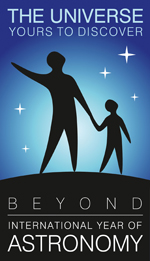6 Ways to Help an Astronomer
1 July 2010
Space is a big place, and even with their giant telescopes, astronomers just can’t cover it all. This is where you come in. Yes, you.
Astronomy is one of the few scientific fields where amateur scientists can, and frequently do, make significant contributions. But now space scientists are increasingly also looking to people with little or no training for help with their research. Sometimes they are looking for free labor for tasks that humans can still do better than computers, like identifying different types of galaxies. Other times it’s numbers of eyes on the sky or feet on the ground they’re after. But more and more, they are finding ways to get regular citizens involved.
Amateur astronomers and regular folks have already had an impact on the science by making observations of fleeting cosmic phenomena that would have otherwise gone unnoticed.
When an asteroid or a comet hit Jupiter in July 2009 and then again earlier this month, amateur astronomers in Australia and the Philippines were the first to notice. Amateurs have invented new telescopes, kept tabs on variable stars and discovered comets. And you don’t even need any fancy equipment.
“We can learn a lot from someone taking a cellphone video of a meteor as it burns up in the atmosphere,” said Bill Cooke of NASA’s Meteoroid Environment Office.
But what if you’re not the lucky one who is in the right place at the right time? You are still needed. Citizen scientists have also become crucial for helping astronomers with one of their most intractable problems: too much data, too little time.
Here are some astronomy projects you can take part in right now, while you wait for your iPhone to capture a meteor.
Read More http://www.wired.com/wiredscience/2010/06/citizen-space-science-gallery/all/1#ixzz0sQNNdxuu
Search IYA2009 Updates

National Nodes: 148
Organisational Nodes: 40
Organisational Associates:33
National Websites: 111
Cornerstone Projects: 12
Special Task Groups: 11
Special Projects:16
Official Products:8
Media Partners:22


